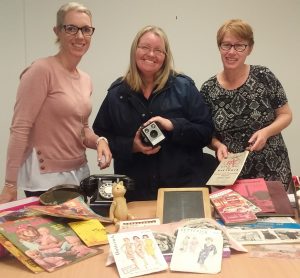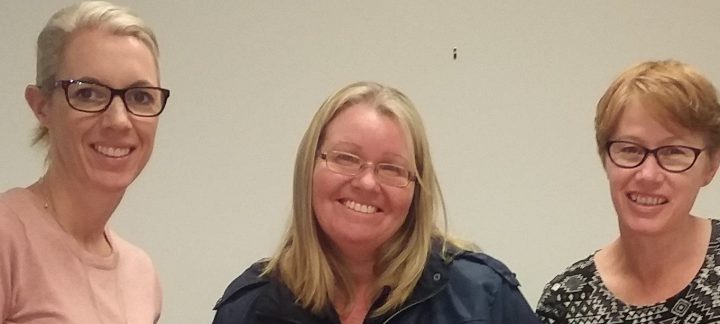Mercy Health’s Dementia Advisory Service has proven to be a game-changer for people like Mornington couple Betty and John*, who have been able to continue living together at home following Betty’s diagnosis of Alzheimer’s Disease.
After a My Aged Care assessment, Betty and John were referred to Mercy Health’s Dementia Advisory Service, which was run by Southern Cross Care (Vic) until April this year. Operating in southern metropolitan Melbourne,** the service provides advice, information and support for the person living with dementia and their carer. This includes education about the symptoms and different stages of dementia, helping people navigate the aged care system and arranging respite support. The advisory service includes up to 18 hours of respite and referrals to other services.
Mercy Health Dementia Advisor Kylie Knoble says, “Research shows that the more support services people use, including respite care, the longer they can stay at home with the help of their carer. This reduces the chance of the person living with dementia having to go into residential care.”
Often it only takes a little bit of advice and support to help someone keep their independence.
Kylie took a holistic approach to arranging care for Betty and John. Firstly, she provided information about the cognitive dementia and memory service in the area. She also encouraged them to get a referral from their GP to see a geriatrician. She then organised a care plan to enable Betty to continue living in the comfort of her own home, which included strategies for John to calm Betty’s anxiety. The care plan also covered in-home respite with the same home care worker each week to encourage Betty in activities she enjoyed, such as singing, dancing and reminiscing about her childhood in the UK. The respite program has significantly decreased Betty’s anxiety. Furthermore, John is now able to have some much-needed time to himself.

L-R: Mercy Health Regional Manager Kelly Murphy, Home Care Worker Dianne Watson and Dementia Advisor Kylie Knoble with some objects to help people reminisce.
Caring for the carers is an important part of the program. Looking after someone with dementia can place a significant strain on carers and they are often reluctant to seek out and accept respite.
“There are lots of reasons for this,” Kylie explains. “They might fear that a request for help will be seen as an admission that they’re not coping, they may fear having a stranger in their home, or they may feel guilty about needing to have a break.”
With almost one in 10 people over the age of 65 and almost one in three people over the age of 85 living with dementia in Australia, the Dementia Advisory Service plays an important role in helping people live independently in their home, for as long as they can.
“Often it only takes a little bit of advice and support to help someone keep their independence. I feel that what I do really makes a difference and can help improve the quality of life of both the carer and the person living with dementia,” Kylie says.
* Names have been changed.
**Covering the Frankston, Mornington Peninsula, Kingston and Bayside areas.



